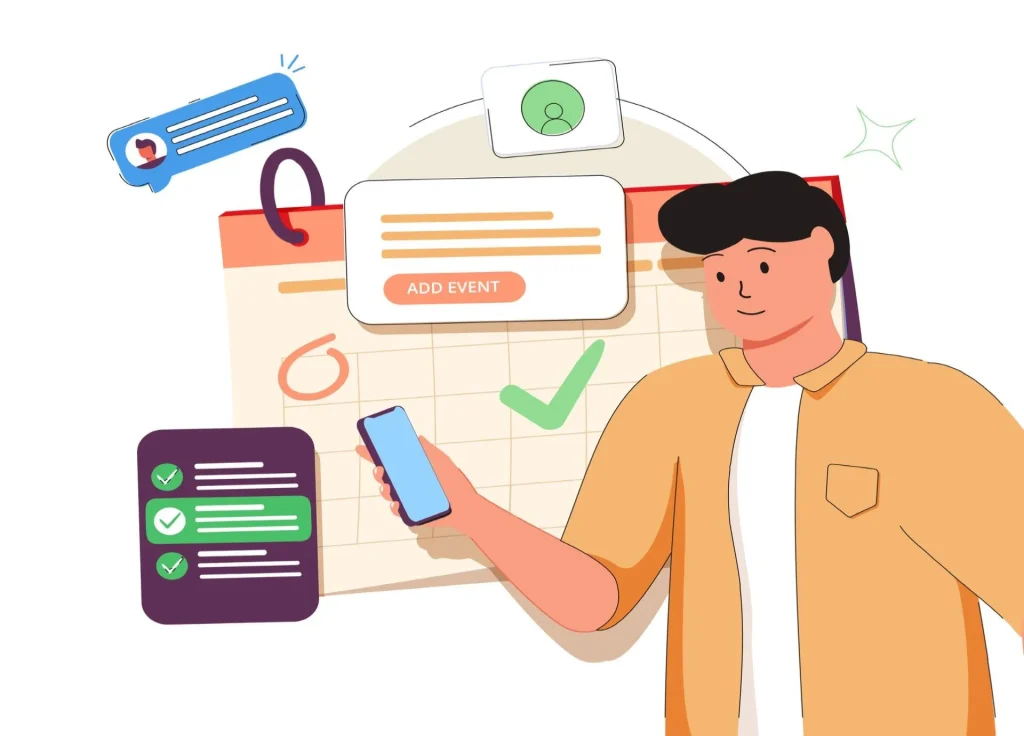In the modern world, being a master of time is crucial for teenagers. However, it can be quite challenging for them to strike a balance between studies, extracurricular activities, social life as well as individual hobbies but having strong time management skills at an early age can be helpful in managing this challenge and setting the stage for success in adulthood.
This inclusive guide supplies efficient tactics and workable tips for teenagers to efficiently manage their schedules which will help them with task prioritization, stress reduction as well as goal attainment.
The Significance of Time Management for Teens
But what if we perceive time not only as a period necessary for completing tasks but also as a balanced combination of job and leisure? For teenagers, effective time management is very important because it directly affects their performance at school or college and personal development generally speaking.
The Relevance of Time Management during the Teenage Years
Adolescence is a crucial period in the life of any individual. This is the stage where teenagers begin to shoulder more responsibilities both academically and socially. Important time management measures for teenagers:
- Meet academic deadlines: Good time management enables them to avoid last-minute stress in completing assignments, projects and preparing for exams.
- Social life versus academics balancing act: Time management enables them to engage in social activities without affecting their education life.
- Gain independence: Teens, who learn how to allocate time properly, will be able to prioritize tasks and make decisions on their own.

How Time Management Skills Influence Academic and Personal Success
The success of students inside classrooms can be attributed directly to time management skills. Students who are good at managing their time tend to:
- Earn better grades: Allocation of studying hours properly by teenagers improves their understanding about subjects hence improved performance in exams.
- Stress reduction: Proper allocation of time reduces last minute cramming as well as anxiety due to approaching deadlines.
- Self-discipline improvement: Self-discipline is acquired through time management which helps one grow intellectually and personally.
Common Difficulties that Teens Have in Time Management
Many teenagers are unable to manage time because they encounter a number of problems. Identifying these challenges is the first step towards resolving them.
Barriers That Hinder Effective Time Management
There are several things that can prevent teenagers from managing their time effectively:
- No structure: A lack of a schedule or routine could make it hard for teenagers to organize themselves and plan for their work.
- Distractions: Facebook, online games and other internet distractions are capable of taking up large portions of a young person’s day.
- Bad prioritizing: This will lead to procrastination as well as incomplete assignments because teens may find it difficult prioritizing tasks.
Understanding the Stresses and Distractions Faced by Adolescents
For example, adolescents today face many stressors and distractions that make them struggle with time management:
- Academic stressors: The dearth of completeness along with excessive anxiety might be borne out of pressure to do well academically.
- Social influences: However, striving to belong somewhere or having social life may shift an individual’s focus from responsibility.
- Tech Sirens: The constant messages from various social media sites as well as recreational applications can undermine concentration on important issues thereby reducing productivity.

Overcoming Procrastination and Low Motivation
Procrastination and low motivation are common problems that can derail even the best made plans. Some strategies to deal with this include:
- Set small, achievable goals: This will help in dividing up tasks into smaller units making them more manageable and less overwhelming.
- Employ incentives: After finishing a task, it is very motivating to reward oneself.
- Remove diversions: To assist teenagers in concentrating better, they should create an environment without distractions.
Strategies to Teach Time Management for Teens
Teaching adolescents effective time management techniques could help them take charge of their schedules and success in various spheres of their lives.
Goal Setting and Prioritization Techniques
One of the most efficacious ways of managing time includes clear goal setting and task prioritization. These techniques entail:
- SMART goals: Specific, Measurable, Attainable/achievable/approachable/realizable/actionable/feasible/doable/tangible.
- The Eisenhower Matrix: It assists teenagers in categorizing activities by urgent or significant so that they only focus on what is more important.
Creating a Balanced and Structured Schedule
Efficient management of time requires having a well-structured schedule. Ways in which to develop a balanced schedule include:
- Allocating time for each activity: Inspire teenagers to assign study, hobby or relaxation periods.
- Utilize of planner software or digital calendars: Task scheduling and following up on tasks can help the teenagers stay organized and meet their responsibilities.
Tools and Apps to Help Teens Manage Their Time Effectively
Numerous tools and apps exist today that can help teenagers manage their time effectively:
- Taoist: This is a task manager that enables teenagers to organize their tasks based on priority or deadline.
- Google Calendar: It is an excellent tool for scheduling events and setting reminders on important dates and deadlines.
- Forest: The user grows a virtual tree when they abstain from using the phone while working, this app helps users maintain focus.

Practical Tips for Teens to Improve Time Management
Besides strategies, there are practical tips that teens can apply in improving their time management abilities.
How to apply Eisenhower Matrix
The very powerful tool in helping the teenagers prioritize their tasks is the use of Eisenhower matrix that classifies them into four quadrants:
- Urgent and important: This includes activities which are calling for immediate action such as preparing for a test.
- Important but not urgent: This refers to long term objectives like doing an assignment due in one month’s time.
- Urgent but not important: It encompasses jobs which require attention but can be passed on or reduced like answering a non-essential message.
- Not urgent and not important: They constitute interruptions that can be removed or delayed such as scrolling social media pages.
Pomodoro Technique for Focus and Productivity
Pomodoro Technique, as a means of time management, suggests focused work interspersed with short breaks:
- Work in intervals: Set your timer for 25 minutes of aimed work followed by a 5-minute break.
- Take longer breaks: After four “Pomodoro’s”, take a long break from 15 to 30 minutes so you have time to recharge.
Good Habits to Sustain Success Over Time
Time is of the essence in building healthy habits for long-term success:
- Stick to sleep schedule: A regular sleep routine will help you stay energetic and attentive all day long.
- Eat right: A good diet can support a person’s ability to think, reason, and even feel better generally.
- Exercise daily: Engaging in regular physical activities such as going to gym can improve concentration among other benefits.
Balancing Academics, Extracurriculars, and Personal Life
Teenagers require a balanced lifestyle for them to strive in different areas. Here is how they can divide their time among various aspects of life.
Tips for Maintaining a Healthy Work-Life Balance
To prevent burnout, it is important to maintain a balance between work and life:
- Set boundaries: Help teens create lines between study times and free moments.
- Self-care first: Encourage reading, leisure activities like hobbies and spending quality time with friends which helps in keeping sound minds.
Managing Time for School, Hobbies, and Social Life
Juggling school, hobbies, and social life can be hard to do but with these suggestions it is achievable:
- Schedule social activities: By planning in advance when you will have time for friends ensures you won’t mess up your studies.
- Incorporate hobbies into daily routines: Adolescents are encouraged to engage in hobbies as a relaxation tactic and as an inspiration tool.

How Parents Can Support Their Teens in Developing Time Management Skills
The contribution of parents in the process of developing time management skills among their children cannot be underestimated. This is how they are supposed to support their teens effectively.
Creating a Supportive Home Environment
For good time management habits to develop there has to be a supportive home environment:
- Provide a quiet study space: This separates where one does their work from where they play or sleep so that they can focus better.
- Encourage open communication: Talk about the challenges associated with time and how one can handle them efficiently.
Modeling Good Time Management Behavior
Parents who show good time management behavior include themselves in such situations:
- Set a routine: Teaching teenagers how to plan each day so that there is enough time for studying and leisure activities too.
- Share experiences: Tell them how you organize your day and the rewards you get from it.
Encouraging self-reliance and maturity
Encouraging self-reliance and maturity allows teenagers to take control over their time management:
- Allow them autonomy: Enable teenagers to make choices regarding how they use their time while offering some assistance where necessary.
- Hold them responsible for actions: Convincing teenagers to stick to a
- schedule and making sure they do what they say they will do should be considered by parents/teachers.
Conclusion
Time management is one of the most important skills that can guide teens towards success in their school life as well as personal life. By appreciating the importance of time management; surmounting common setbacks.
Putting into practice worthwhile techniques, young adults can learn how to handle their time effectively leading to a strong base upon which they will build future achievements.
FAQs
Q1: Why is time management important for teenagers?
Managing time properly holds significance to children in the ramp-up to adolescence because it helps them fit their academic activities with other engagements such as extra-curricular work, social events and personal hobbies. It also minimizes stress and enhances general well-being.
Q2: What are some successful strategies for managing time by adolescents?
Effective time management approaches for teenagers include creating SMART objectives, employing Eisenhower’s matrix for tasks prioritization, making structured timetables, and availing themselves of tech tools like Google Calendar or productivity application.
Q3: How can parents help their teens develop time management skills?
They can do this through developing a supportive home environment, being an example of good time managers and teaching the child how to be responsible for his/her own schedule.
Q4: What are common challenges teens face in managing time?
Common obstacles comprise distractions from technology devices, peer pressure, academic pressures, delaying work until the last minute, and lack of motivation.
Q5: How can teens balance academics, extracurriculars and social life?
Teens may attain equilibrium among academics; co-curricular activities by establishing boundaries that are clear to everyone involved; first taking care of oneself; scheduling in some visits out with friends; including things one loves doing every day.

Russell F. Jones, holding a Master in psychology from the University of Florida. He writes for Smart Parent Solutions, offering practical advice on parenting and child development. His engaging content helps parents navigate family life with confidence and ease. Russell enjoys sharing his knowledge and spending quality time with his family.
